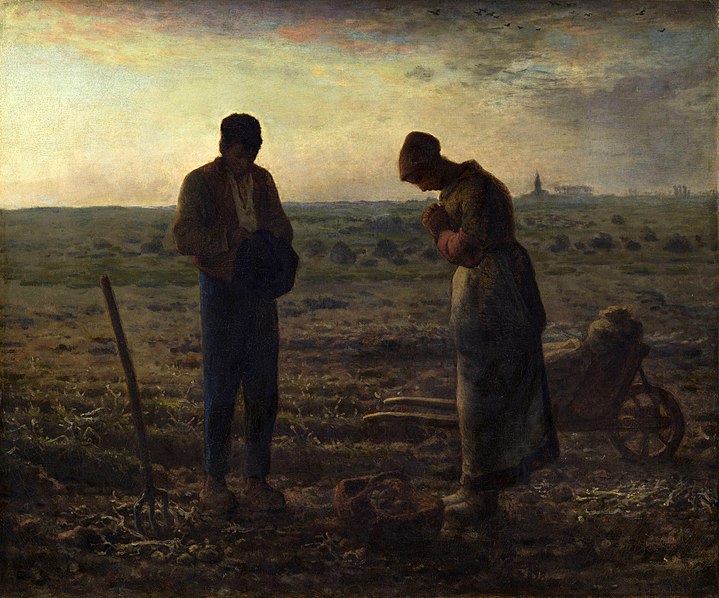
Born in Catholic France, Hilaire Belloc ultimately chose to live in Protestant England.
Factors like his English upbringing and brilliant English education led him to feel, I think, that he could never properly establish himself in France. (Although he seems to have longed for just that, at several points in his early life.)
And yet how his whole life seems to have been haunted by France, travelling there, very, very often. Indeed, he chose to live near the Sussex coast and one wonders whether its proximity to France was a major consideration.
His Irish-American wife Elodie shared the same passion. Indeed, she spoke of ‘Holy France’. It would seem she found the comparison with England difficult indeed.
We find fragments of a letter from her in Joseph Pearce’s biography of Hilaire Belloc:
It is almost impossible for anyone to whom God has not given it to suffer to know what it is for two militant and convinced Catholics to live in our world in England.
Dear Reader, how these words will baffle many modern minds. How harsh they may seem to those who love England!
And yet reading them, I confess, yielded a sigh of recognition in my soul.
I myself found returning to England very hard after years in Ireland, Spain and France – all countries, which are marked, of course, by Catholic culture.
Indeed, Kim and I chose Liverpool in the end – because, as I have said elsewhere, it is not quite like the rest of England.
To be more specific, Liverpool is the closest thing in England to Catholic Ireland.
Vast numbers of the Irish emigrated there and thus one finds a population in the city unlike anywhere else in England – over forty per cent is at least nominally Catholic. North Liverpool is even moreso – the neighbourhood we lived in was close to ninety per cent Catholic.
And the city, like a French or Irish city, is dotted with magnificent Catholic churches.
All this is very, very different from the rest of England, which is so steeped in the centuries of Protestantism.
And when I returned to Britain, truly I felt starved in the southern part of the island – that culture so pervaded by the Reformation.
Joseph Pearce is, I suspect, a bit baffled by Elodie. He writes of her ‘babbling’ about ‘Holy France’.
Babbling: I suspect Pearce cannot easily penetrate Elodie’s personal correspondence, as when she writes of a
Happy blessed people who have high horizons … and who work in the fields and who sleep at night and who go to Mass and say their Rosaries in trains and behind their market stalls.
May God give back to England some such strong hold upon her own heroic soil …
These precious Frogs (I call them so lovingly) hold securely to their land, their country, their very God by a silky film like a spider’s web.
In another biography of Belloc, A.N. Wilson appears similarly bemused that Elodie reports going to Confession three times in one week, while the Bellocs holidayed in France.
But I wonder if sheer relief from England has much to explain here.
France and England would have still been so very, very different back then – at the turn of the twentieth century.
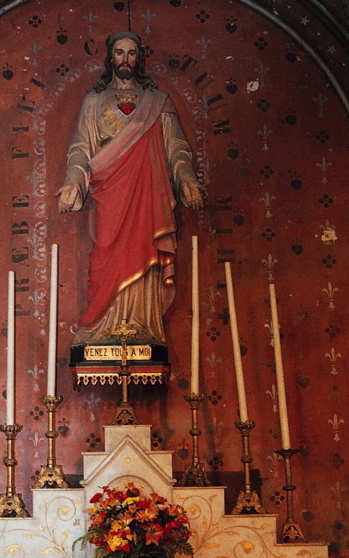
How easily I can imagine Hilaire and Elodie in France back then. (I call them by their Christian names, because truly they seem like dear friends to me.)
Whereas the English country villages would have had an Anglican service, perhaps only once a week, the French villages across the channel would have had Holy Mass every day.
I can imagine that in the western parts of France so close to England (like Brittanny) and so pious, the comparison would have been stark indeed.
Masses of villagers would have been in those Masses …
It is easy to imagine long lines at the confessional, back then.
France, at least rural France, would have been permeated by a rich, traditional Catholicism.
It is easy, in short, to imagine Elodie swooning at the enormous difference she saw between a stuffy English village life and a passionate, pious French village life, circa 1900.
Passionate, pious French village life, circa 1900 … I think to Vaylats.
Vaylats is a small village – not much more than a hamlet – in central France with a convent attached to it. Evidently, the convent was not enough for the small settlement. Because in 1895, the villagers erected a beautiful, new church which still bears the following inscription:
To Jesus in the Host, Their King, Their Saviour, their adored host, the inhabitants of Vaylats, making with joy all the necessary sacrifices, have erected this church as a humble monument of their faith, their religion and their love.
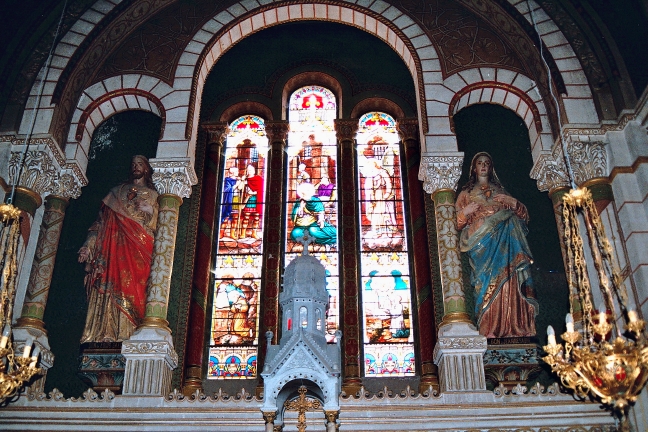
Truly, the difference between English and French rural life circa 1900 must have been stunning. No wonder, if Elodie swooned.
I confess that what remains of Catholic culture in Europe still makes me swoon, a little.
England still has its charms to be sure, but I remain deeply moved by the piety one still finds in Catholic Ireland and Catholic Spain (if not so much, alas, France).
One hesitates to say much about England, for there are those who love her and I do not wish to offend them.
But it is clear to me that the Bellocs found England dull and utilitarian – and for all England’s undisputed charms, I do understand why.
‘England is a nation of shopkeepers’ – as an old truism about England has it. Like all such truisms, it misses a great deal of truth.
Still, England (and Holland) are really the birthplaces of capitalism. Belloc would claim – along with many others, such as the atheist sociologist Max Weber – that Protestantism was a key reason why.
And this fact led Belloc to unpopular statements about English (and American) culture, such as:
The more Catholic a country is, the less easily does it accommodate itself to the social arrangement of a proletariat subjected to millionaire monopolists.
Belloc was very unpopular in many circles in England. But part of his problem, I think, is that he belonged to two worlds. He knew both Protestant Europe and Catholic Europe in intimate ways that very few people could or did at that time.
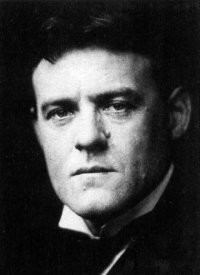
Seeing England, as somebody who was both intimate with her and yet also an outsider yielded insights in Belloc’s soul – insights which often seemed outlandish and hurtful to those who had hardly ever stepped beyond England’s shores.
But from my own experience, these same insights seem acute – and Belloc was nothing if not an acute observer of human nature.
I, myself, cannot claim anything like this profound, intimate knowledge Belloc had. But in my own limited way, I feel just a very little bit the same as him.
I have now spent some seven years in Catholic Europe and the rest of my life in Protestant Europe and America.
Even to this day – where an Anglo-American driven globalisation homogenises Europe – there remain striking differences between the at least formerly Protestant and Catholic cultures.
And without wishing to be harsh towards my own Anglo-American roots (for I am American, born of English parents) I must say: I understand. I understand Hilaire Belloc and his wife Elodie, born of Irish parents in America.
England and America, I think, could not sustain their souls. They starved, somehow.
England, they saw, was pervaded by this utilitarian, commercial spirit – the spirit that drove the British Empire.
By contrast, France and Ireland seemed holy to them. (There is a piece at this site about how much Hilaire Belloc revered Catholic Ireland).
France, Ireland, Spain – you are, of course, filled with fallen, fallible souls like everywhere else. There is, of course, very much that is less than holy about you.
However, you feed my soul in ways that other more utilitarian cultures can never do …
And I fear that in our ever more utilitarian, mercantile culture, we have much we can still learn from Hilaire Belloc.
And yet, alas, our ears remain firmly plugged to voices contrary to the world-dominant Anglo-American culture …
Foreword for Monarchy by Roger Buck
Buying Books at Amazon Through These Links Gives Us a Commission. This Supports Our Apostolate. Thank You if You Can Help Us Like This!





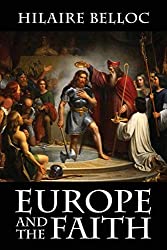
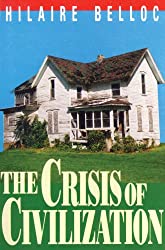
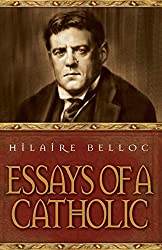
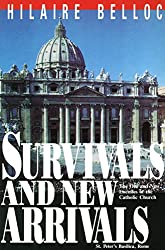
Comments
comments are currently closed
One response to “Holy France and Catholic Europe”
[…] « Holy France and Catholic Europe […]